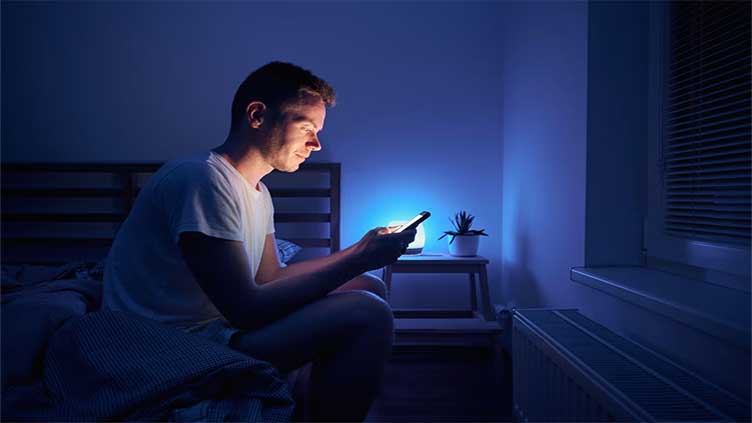What smartphone usage is doing with our health

Technology
The impact on younger generations is particularly concerning
(Web Desk) - Modern life is intrinsically linked with technology – but while our gadgets offer undeniable benefits, there are growing concerns about rising screen time.
The average UK resident spends five hours and 34 minutes looking at screens daily, and over a quarter of Britons (27 per cent) express concern about their smartphone usage, according to data from consumer research platform GWI.
While not yet officially recognised by the NHS, tech addiction is a growing issue, says Dr Catherine Carney, a psychiatrist and addiction expert at Delamere rehab clinic.
Dr Carney points to the concept of "digital sugar", where excessive technology use triggers physiological responses similar to substance addiction, driven by the dopamine rush of social media. This dependence can have far-reaching consequences.
"If you’re sitting on your phone instead of being outside, in the gym, meeting with a friend, it can reduce access to socialisation and actually cause cognitive problems," she explains.
The impact on younger generations is particularly concerning. Research funded by the National Institutes of Health indicates premature thinning of the brain cortex in children with seven or more hours of daily screen time.
Furthermore, Dr Carney notes that children with high phone usage often struggle with reading and writing at school compared to their less digitally engaged peers. Here are some other health concerns linked to rising screen time:
“Prolonged screen use often causes the head to shift forward, a condition commonly referred to as ‘text neck’,” says Faye Deane, Chiropractor and British Chiropractic Association member.
“This increases strain on the neck muscles and cervical spine, contributing to chronic pain, headaches, and even early degenerative changes. Sedentary lifestyles, remote work, and prolonged desk use also contribute to a hunched posture.
“Clinically, we see that excessive screen time leads to tight chest muscles and weakened upper back muscles, increasing the risk of musculoskeletal dysfunction. This postural imbalance can result in chronic discomfort and a higher likelihood of developing kyphotic (rounded upper back) postures over time.”
WEIGHT GAIN
“Spending too much time on screens is making us more sedentary, which can have a big impact on health,” says Dr Crystal Wyllie from ZAVA Online Doctor.
“Sitting for long periods increases the risk of weight gain, obesity, diabetes and heart disease.”
“The eyes can often become strained when focussing on screens for a long period of time,” says Giles Edmonds, Specsavers clinical services director.
“Digital eye strain is a very common condition that occurs from prolonged screen time. Spending too much time focusing on digital devices means your eyes may become fatigued, and sitting too close to screens can also strain their eye muscles.
“Light glare reflected on digital screens can also make this worse, causing further eye strain.”
INCREASE IN ANXIETY
“Social media in general can create anxieties and extra pressures which make people feel like their lives seem inadequate and insignificant,” Dr Carney says.
“The same goes for when you’re seeking likes and comments on a photo – it can both boost your confidence but if you don’t get ‘enough’ it can have the opposite effect.”
Searching for validation on social media can lead to anxiety (Getty Images)
LACK OF SOCIAL SKILLS
“There is an argument that people who are shy or socially awkward can often find social media easier to interact with people on,” Dr Carney says.
“However this can lead to them becoming dependent on it for connection and use it excessively. This is then mirrored with an ongoing reduction in social skills and withdrawing from the real world.
“It becomes a catch-22 because you’re using social media for your self-esteem and confidence but it’s actually reducing all the skills you previously had.”
DISRUPTED SLEEP PATTERN
“Mentally, screens, especially at night, mess with sleep by disrupting melatonin production,” says Dr Wyllie.
“Poor sleep is also linked closely to stronger cravings for sugary or high-carb foods as the body looks for a quick energy boost.”
“If you’re going to bed at 11 and endlessly scrolling through social media for hours, your sleep may be affected and this carries into the next day when concentration levels aren’t going to be as good,” Dr Carney says.


